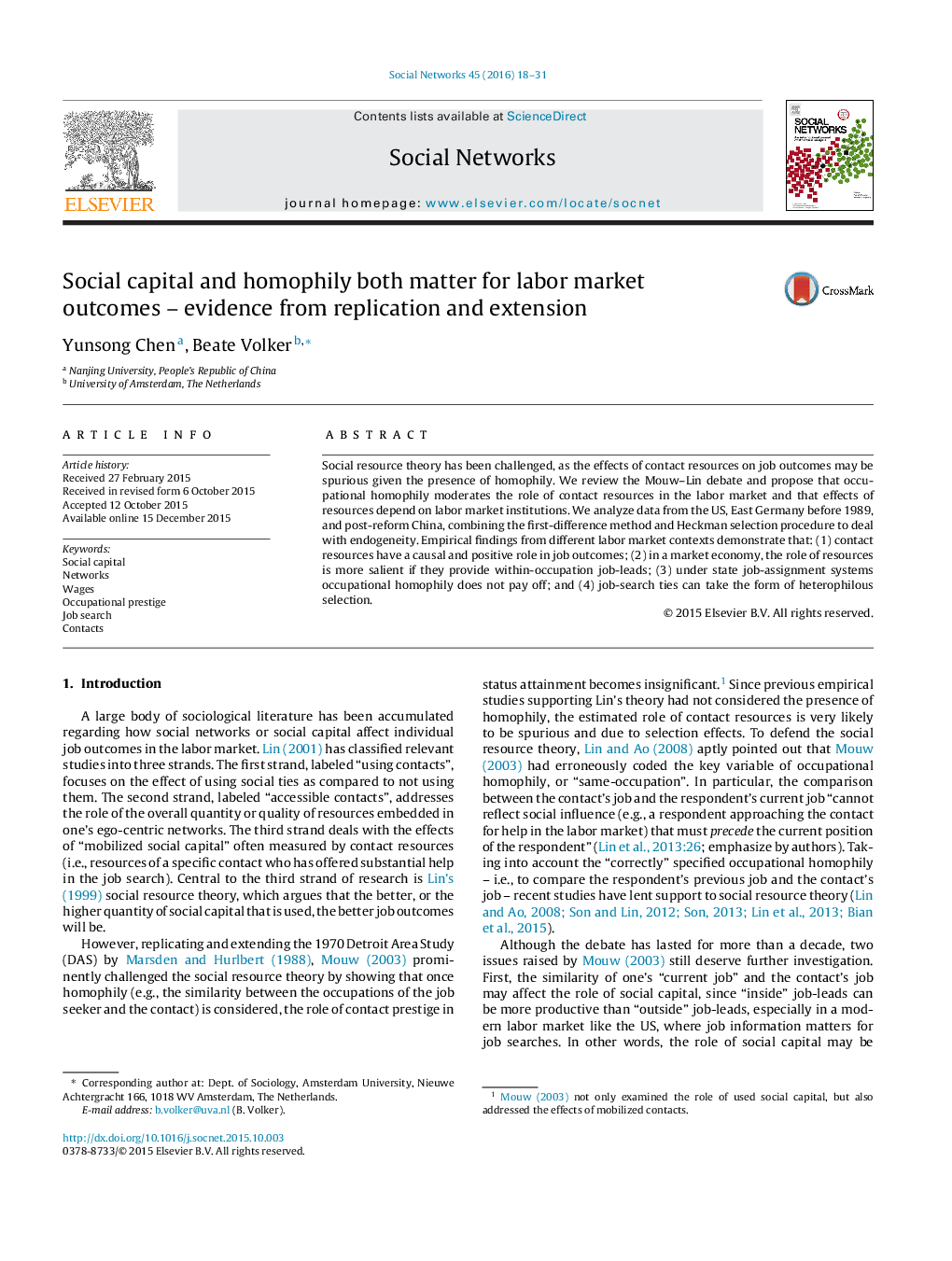| Article ID | Journal | Published Year | Pages | File Type |
|---|---|---|---|---|
| 1129174 | Social Networks | 2016 | 14 Pages |
•We provide new arguments on the Mouw–Lin debate.•We study the effects of occupational homophily in different institutional settings.•We re-analyze data from different economies to test new arguments.•Contact resources causally matter for occupational attainment.•Occupational homophily strengthens the role of resources in a free market society.
Social resource theory has been challenged, as the effects of contact resources on job outcomes may be spurious given the presence of homophily. We review the Mouw–Lin debate and propose that occupational homophily moderates the role of contact resources in the labor market and that effects of resources depend on labor market institutions. We analyze data from the US, East Germany before 1989, and post-reform China, combining the first-difference method and Heckman selection procedure to deal with endogeneity. Empirical findings from different labor market contexts demonstrate that: (1) contact resources have a causal and positive role in job outcomes; (2) in a market economy, the role of resources is more salient if they provide within-occupation job-leads; (3) under state job-assignment systems occupational homophily does not pay off; and (4) job-search ties can take the form of heterophilous selection.
